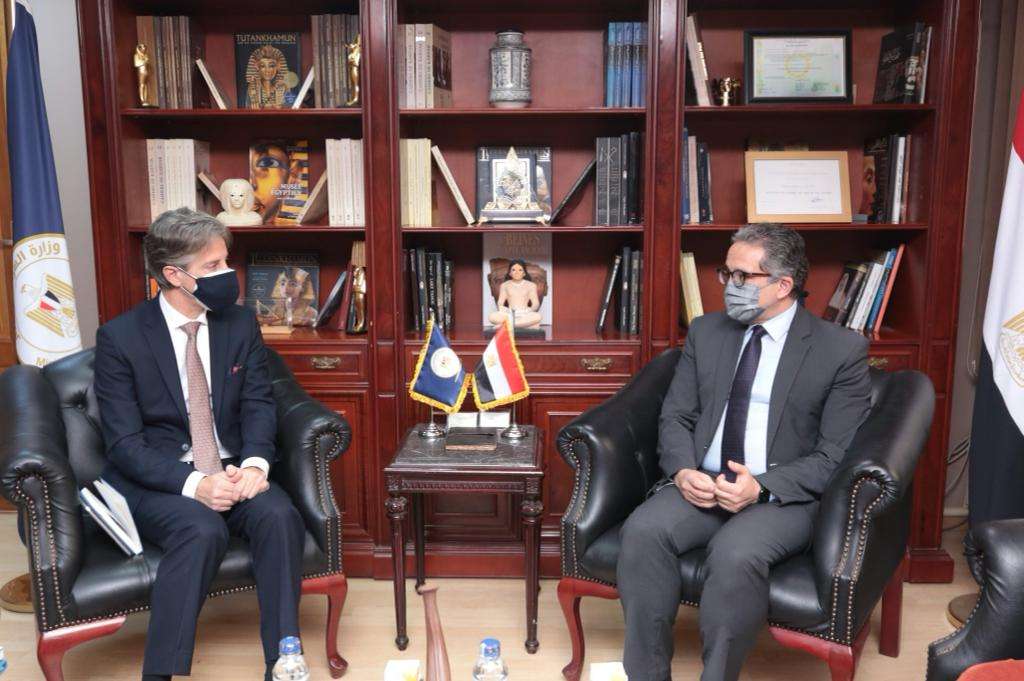Today, Dr. Khaled El-Anani, Minister of Tourism and Antiquities, received, in his office at the ministry’s headquarters in Zamalek, Mr. Alessandro Fracassetti, the Resident Representative of the United Nations Development Program in Egypt (UNDP), who took up his post recently, to discuss enhancing cooperation in the field of tourism and antiquities.
Dr. Khaled El-Anani began the meeting by welcoming Mr. Alessandro Fercassetti, congratulating him on assuming the duties of his new position, wishing him success during his tenure in Egypt.
During the meeting, the minister reviewed the efforts made by his ministry to transform the tourism sector into an environmentally friendly sector in line with the objectives of the ministry’s sustainable development strategy and Egypt’s vision 2030 to maintain environmental balance, sustain tourism and archaeological activity, encourage the transition towards a green economy, and spread environmentally friendly practices.
The minister talked about the tourism preparations for Egypt’s hosting of the 27th Conference of the Parties to the United Nations Convention on Climate Change “COP27” by working to transform Sharm El Sheikh into an environmentally friendly green city.
He noted that in this context, last January, a decision was issued to commit all facilities, the hotels and tourism sector in Sharm El-Sheikh (as a first stage) must obtain a certificate from one of the approved international or local authorities stating that it has implemented all the requirements of environmentally friendly green practices in accordance with the concept of sustainable tourism.
During the meeting, ways to enhance cooperation in the tourism and antiquities sector were also discussed in many files, including examining the possibility of organizing an awareness campaign to raise tourism and archaeological awareness among all groups of the Egyptian people, especially children and those dealing directly or indirectly with tourists and working to integrate and involve the surrounding local communities archaeological and tourist areas in the process of sustainable development, strengthening community participation and raising the efficiency of human resources.
This is in addition to discussing the possibility of cooperation in the field of ecotourism, especially in light of the ministry’s interest in turning green and transforming the tourism sector into an environmentally friendly sector for the environmentally friendly sector.
The meeting also dealt with discussing cooperation mechanisms to develop and raise the efficiency of services provided to visitors in Egyptian museums and archaeological sites and make them available for easy tourism, especially in light of the efforts made by the ministry in this file to improve the experience of visitors during their tours in these places. The possibility of starting to implement this as a first stage in one of the cities of Upper Egypt and one of the cities of the Delta was also discussed.
Translated by Ahmed Moamar














